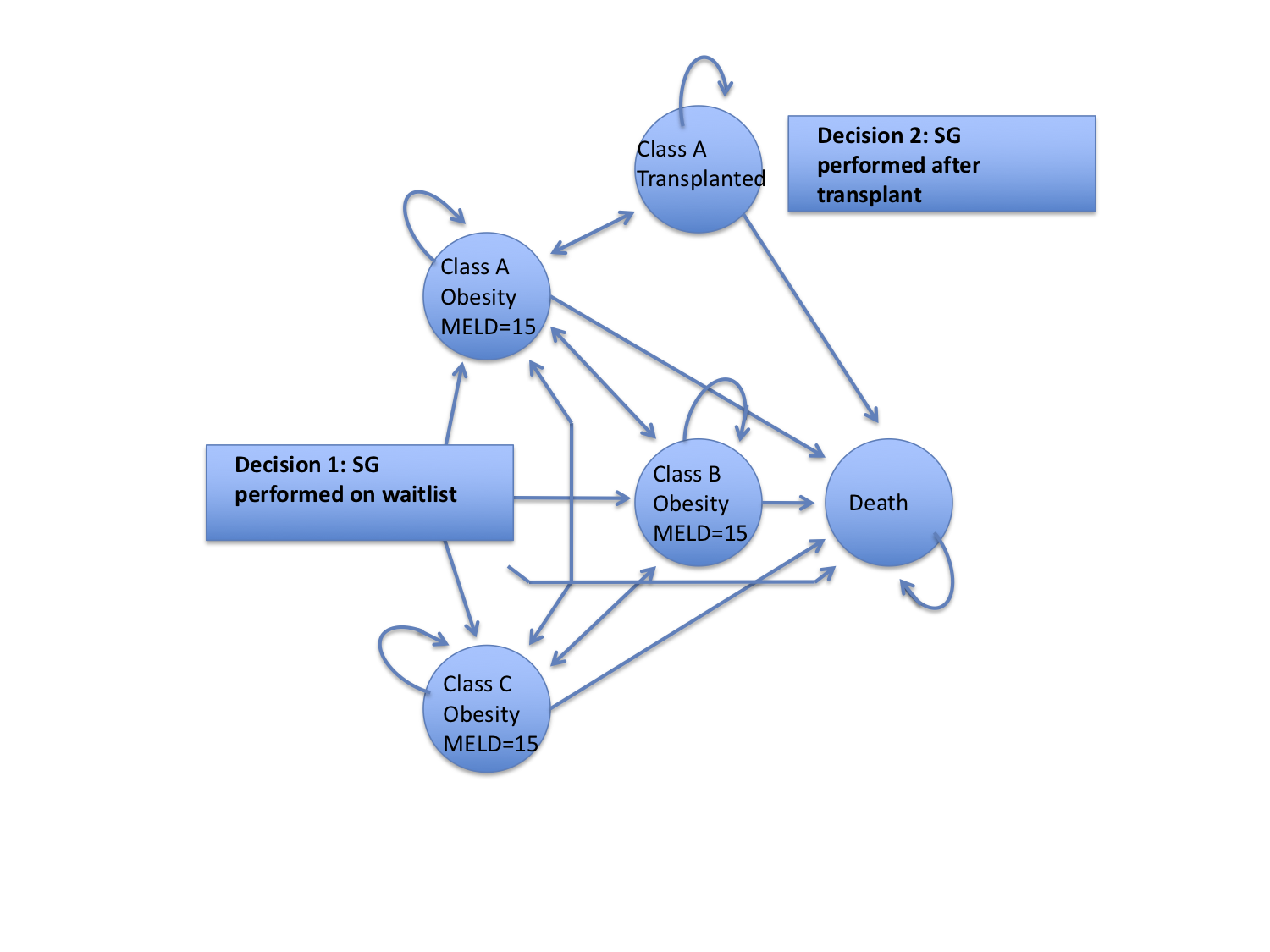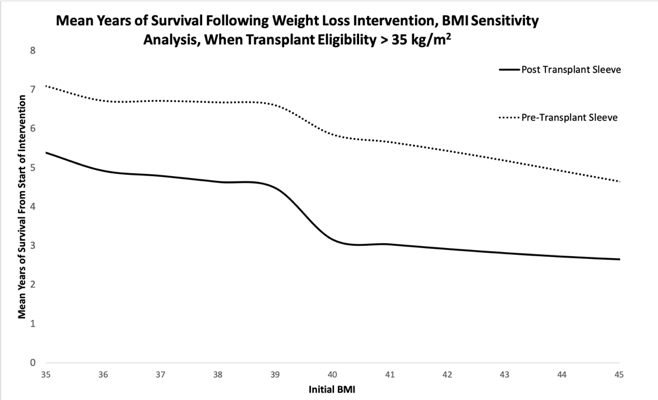Timing of Bariatric Surgery for Obese Liver Transplant Candidates
1Department of Surgery- Division of Transplantation Surgery, University of Colorado Hospital, Denver, CO, 2Department of Surgery- Division of Transplantation Surgery, University of Colorado Hospital, Aurora, CO, 3Thomas Jefferson University Hospital, Philadelphia, PA, 4Department of Surgery, University of Pennsylvania Hospital, Philadelphia, PA, 5Department of Surgery- Division of Transplantation Surgery, University of Pennsylvania Hospital, Philadelphia, PA
Meeting: 2020 American Transplant Congress
Abstract number: 36
Keywords: Liver transplantation, Mortality, Obesity, Prediction models
Session Information
Session Time: 3:15pm-4:45pm
 Presentation Time: 3:51pm-4:03pm
Presentation Time: 3:51pm-4:03pm
Location: Virtual
*Purpose: The timing of bariatric surgery for obese liver transplant candidates remains controversial. Surgery prior to transplant may improves one’s chance of receiving a transplant, but is associated with an elevated complication profile. Additionally, surgery after transplantation is associated with improved long-term graft survival with lower complications associated with surgery. The optimal balance of risk factors/timing of bariatric surgery in the obese liver transplant candidates is unknown.
*Methods: A decision analytic Markov state transition model was created to simulate the life of morbidly obese patients with MELD=15 who were deemed ineligible to be waitlisted for liver transplantation unless they achieved a BMI less than 35 kg/m2. Life expectancy following sleeve gastrectomy (SG) before waitlist placement (SG-pre) and after successful transplant (SG-post) were simulated. Base case patients were defined as having a pre-intervention BMI of 40 kg/m2. Sensitivity analysis of initial BMI was performed. Markov parameters were extracted from literature review.
*Results: SG-pre improved overall survival compared to SG-post after liver transplant. For base case patients, SG-pre patients were transplanted had a higher rate and had a mean survival of 2.6 years higher than SG-post patients.
*Conclusions: Although SG-post is associated with a lower bariatric surgery complication profile and improved survival after transplantation, SG-pre improves access to liver transplantation, and thereby improves overall survival for waitlist candidates. Obese waitlist patients should be offered SG.
To cite this abstract in AMA style:
Choudhury RA, Yoeli D, Hoeltzel G, Moore HB, Yaffe H, Dumon KR, Williams NN, Abt PL, Conzen KD, Pomposelli JJ, Pomfret EA, Nydam TL. Timing of Bariatric Surgery for Obese Liver Transplant Candidates [abstract]. Am J Transplant. 2020; 20 (suppl 3). https://atcmeetingabstracts.com/abstract/timing-of-bariatric-surgery-for-obese-liver-transplant-candidates/. Accessed February 27, 2026.« Back to 2020 American Transplant Congress


